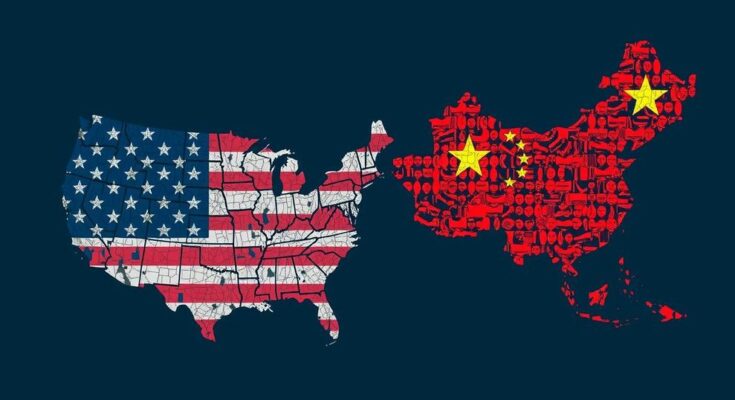Amid increasing tensions as Trump takes a hardline stance against China, U.S. companies are bracing for potential repercussions including retaliatory tariffs and a cooling business climate. The looming challenges reflect a complex interplay of trade dynamics, regulatory changes, and shifting consumer sentiments that could drastically impact American interests in China. Businesses are urged to find alternatives as the risks mount, anticipating backlash in a nation that has embraced nationalism and tightened its grip on foreign enterprises.
As Donald Trump’s administration prepares to take a hardline approach toward China, U.S. companies are bracing for potential retaliation that could jeopardize their interests in one of the world’s largest markets. With threats of steep tariffs looming large over American businesses, the specter of disrupted supply chains and rising retail prices invokes a sense of urgency and anxiety. The repercussions may stretch beyond mere tariffs, extending into the realm of public sentiment and nationalistic backlash from Chinese consumers. In a landscape already fraught with complexities, many businesses continue to search for alternatives, yet the unique and extensive manufacturing capabilities that China has cultivated over decades remain irreplaceable for most. The past offers a glimpse into the potential fallout of disruptive trade tactics. During Trump’s previous term, retaliatory tariffs from China struck at the heart of American agriculture, especially targeting commodities like soybeans. This time, experts speculate that Beijing might leverage agricultural dependencies further to establish dominance, as China actively seeks to minimize its reliance on U.S. products by diversifying its suppliers. The rise of Brazilian corn in the Chinese market signals a shift that could bleed into other sectors, painting a daunting picture for U.S. farmers and producers. Moreover, the business environment within China is increasingly perilous for U.S. enterprises. The tightening of regulatory frameworks and the introduction of laws aimed at curbing foreign influence could mean that American companies might find themselves navigating a treacherous landscape filled with bureaucratic hurdles. The recent upgrade to anti-espionage laws has already led to heightened scrutiny and restrictions, leaving foreign businesses to grapple with a foundation of uncertainty and fear. The strategic landscape continues to evolve, with Chinese officials potentially seeking ways to tighten their grip even more following Trump’s return. As American companies confront the reality of operating in a country that could suddenly turn hostile, the anxiety surrounding potential retaliatory measures looms large. Immediate challenges are multiplying, orchestrating a complex symphony of risk that businesses must now navigate with caution and foresight.
U.S.-China relations have entered a critical phase, especially with the incoming Trump administration’s focus on hardline trade policies. The prospect of severe tariffs and increased scrutiny of American businesses operating in China has raised alarms within the corporate community. This article explores the ripple effects of these policies, examining the potential economic repercussions, shifting consumer sentiments, and the evolving regulatory landscape that could leave American companies vulnerable to retaliation.
In summary, Donald Trump’s anticipated aggressive trade policies pose not only a threat to U.S. economic interests but could also trigger a broader conflict in U.S.-China relations. American companies are left to navigate a landscape marked by retaliatory tariffs, increased regulatory scrutiny, and a potential backlash from the Chinese consumer base. With heightened nationalism in China, the risk of falling victim to economic warfare has never been greater, leaving many businesses scrambling for alternatives while grappling with an uncertain future.
Original Source: www.cnbc.com



